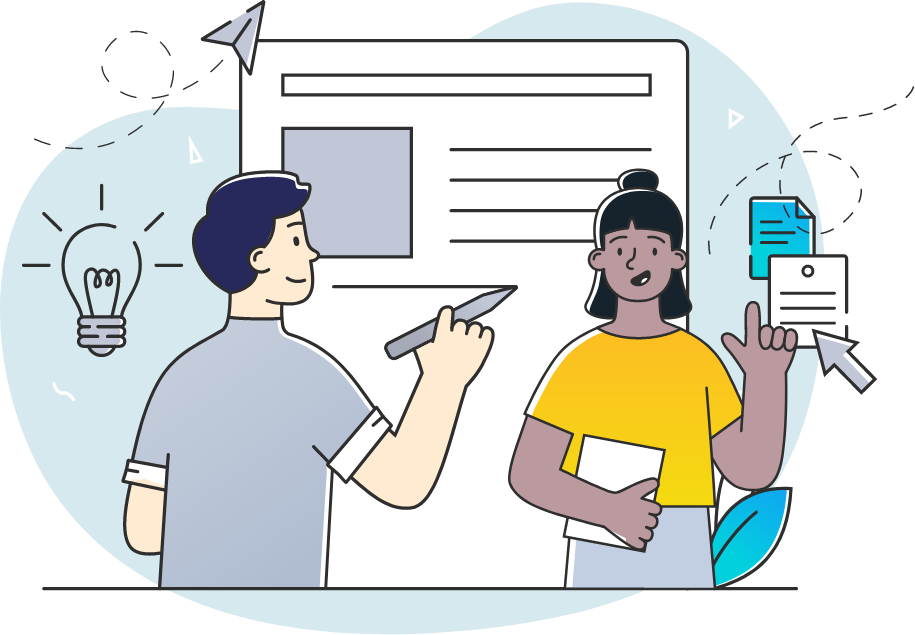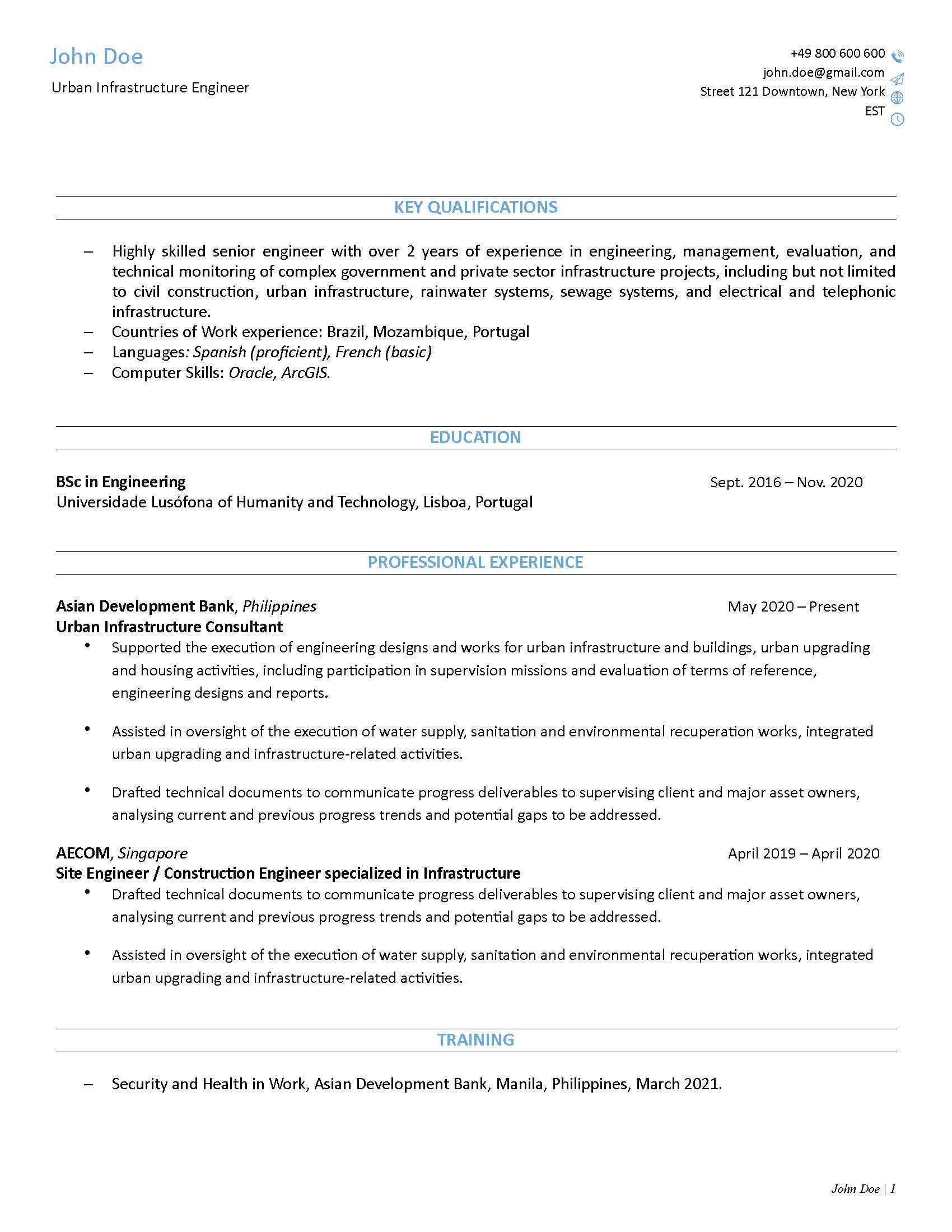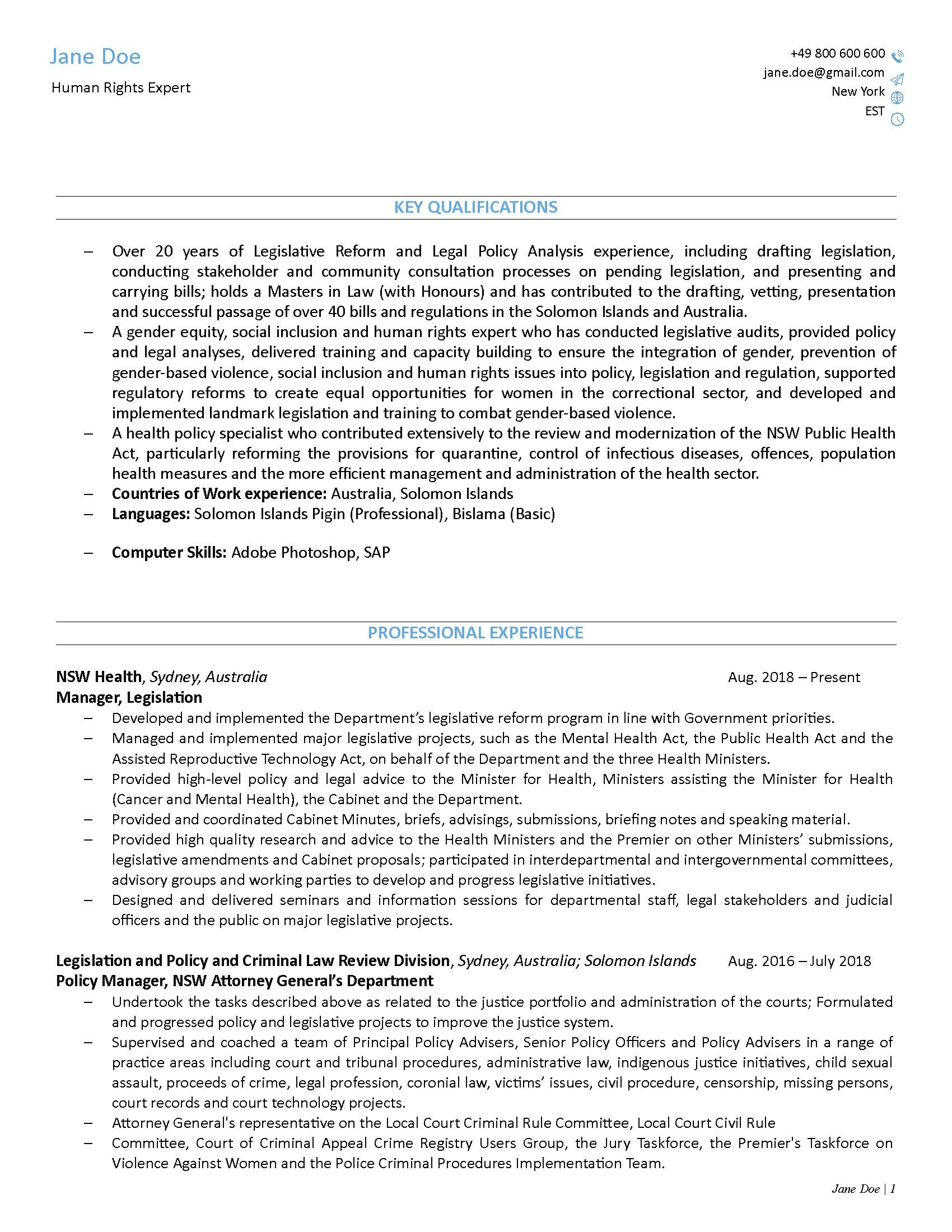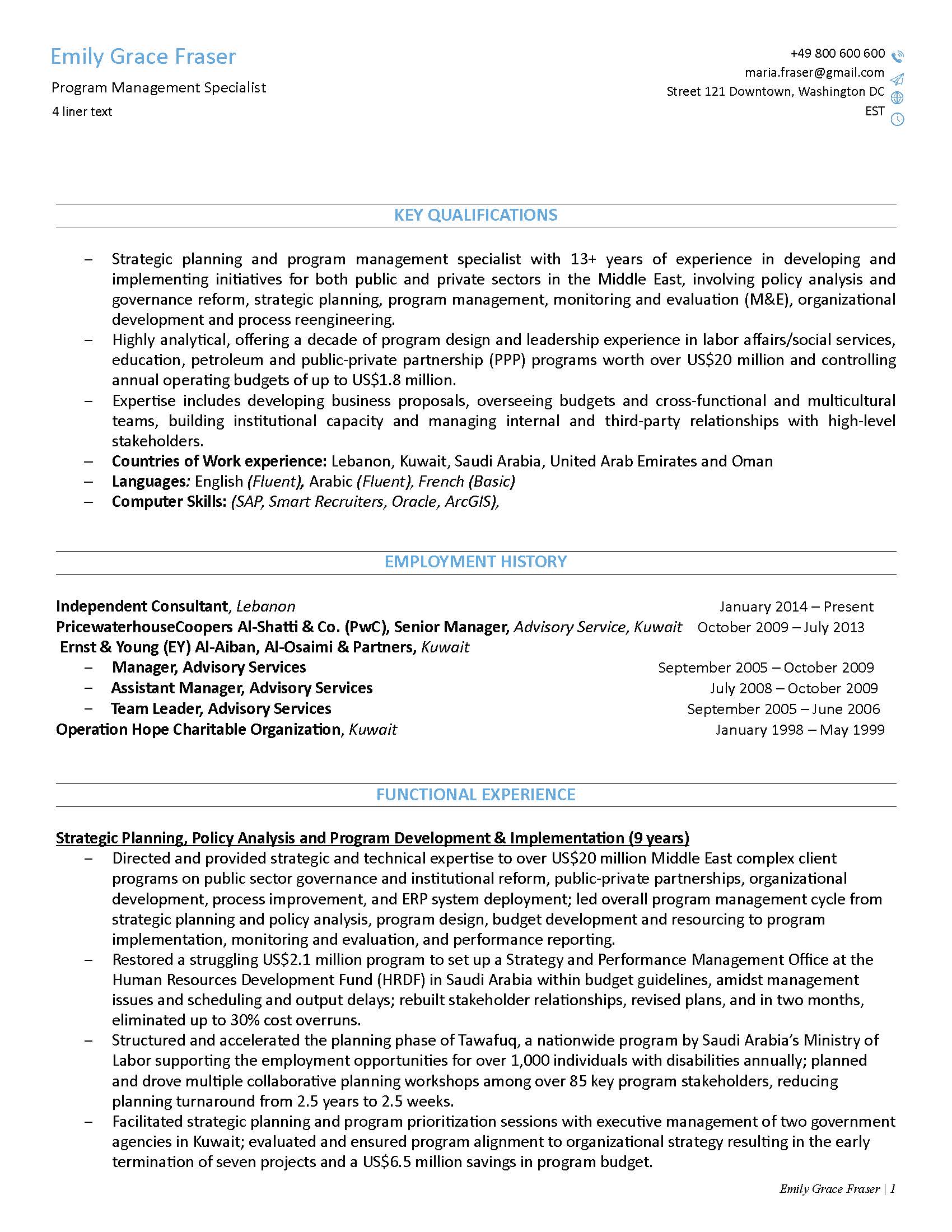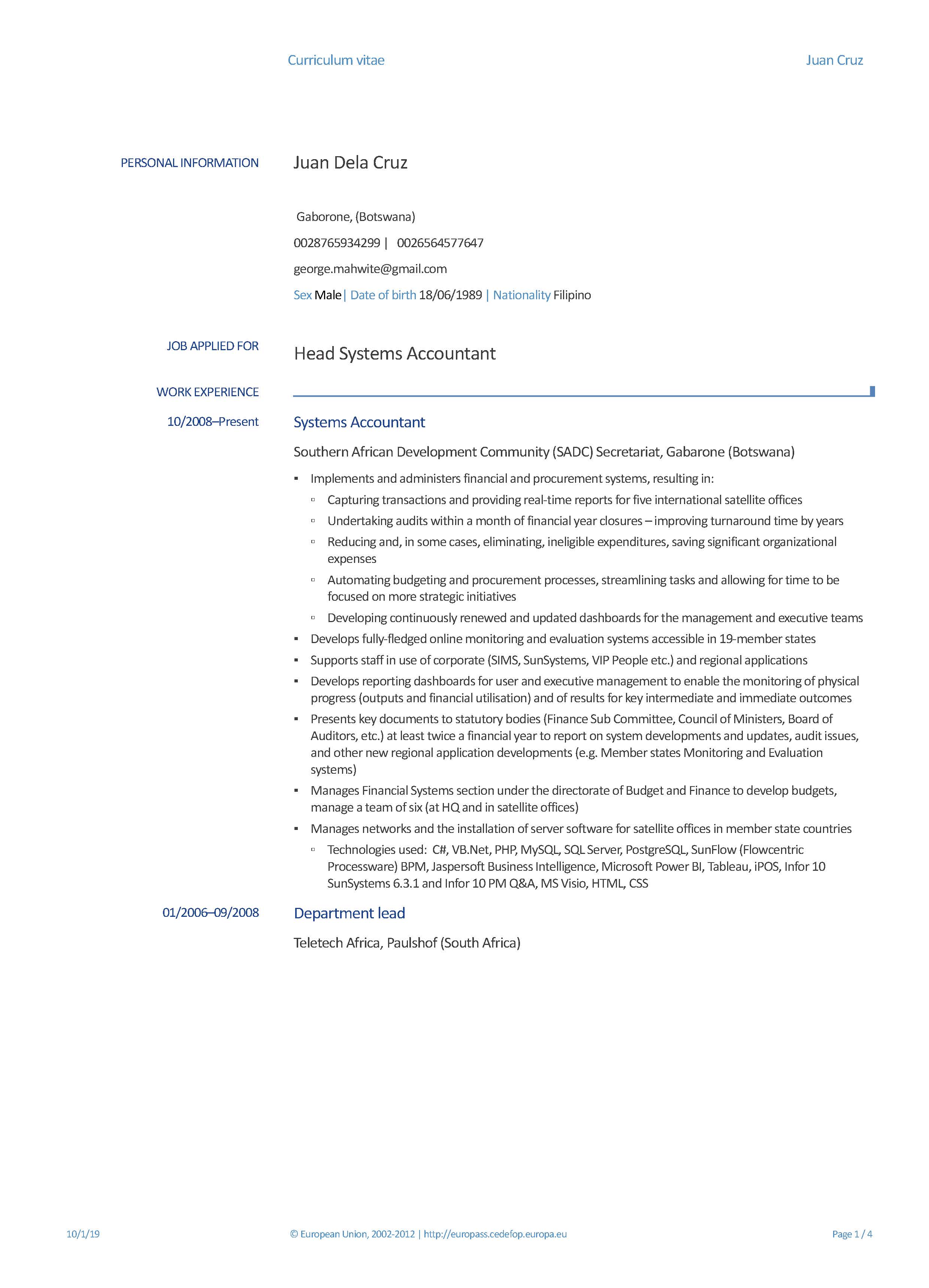Select your template
-

Entry- to Mid-Level CV
An ideal choice for those with 0-7 years work experience, recent graduates, or those just starting out in global development.
-

Senior to executive level
If you’ve got at least 8-15+ years of work experience or you’re transitioning from another sector, this template is for you.
-

Functional template
The best choice for consultants or those wanting to highlight expertise in specific functional areas.
-

Europass CV Template
Top tip: You can edit this template or also transfer your existing CV using the Europass website.
How does it work?
![]()
Choose
Select the template that best fits your experience level or career goals
![]()
Customize
Follow the guided template to add your skills and experience to show your best self.
Need more inspiration? Check out our recruiter-approved CV tips below
![]()
Apply
Once you’ve built your stand-out CV, find your dream job on the world’s largest development job board.
Ask the Expert
We asked our CV writing expert, Heidi Arriola, from the Devex Talent Solutions team to answer your most commonly asked questions.

For example, for roles in project management, international development recruiters look for an indication of leadership skills and familiarity with operations management. If your goal is to land a project manager role, we recommend that you take a look at your professional experience and expound on any experiences or results that demonstrate strong leadership, coordination, and operational management skills. Indicate quantifiable results if you have them. For example, instead of saying, “Responsible for the operations of the HQ and satellite offices,” you can revise it to, “Oversaw five staff in managing a $15,000 monthly office budget for maintaining day-to-day operations of the HQ and satellite offices.”
As for the format, we recommend keeping it as simple and straightforward as possible so it would look consistent across all software and platforms.
Volunteer work is especially valuable if you come from the private sector, and became interested in global development through these experiences. Your career progression should tell this story in your CV, and this also includes internships. Both types of work, even if they were part-time or brief, can strengthen your CV.
